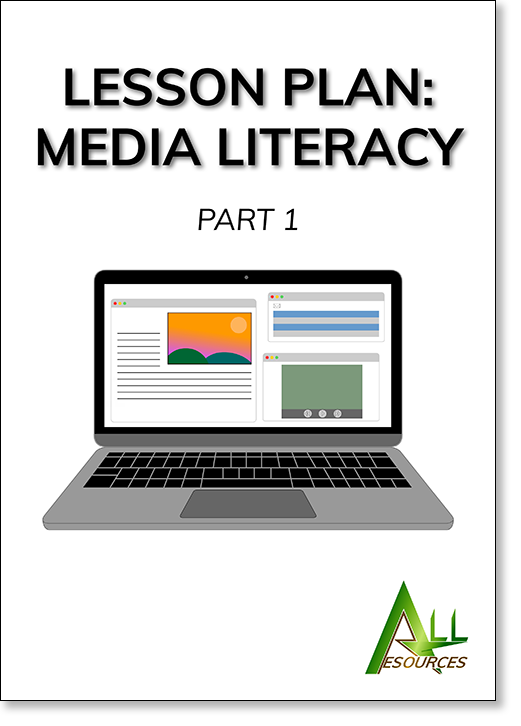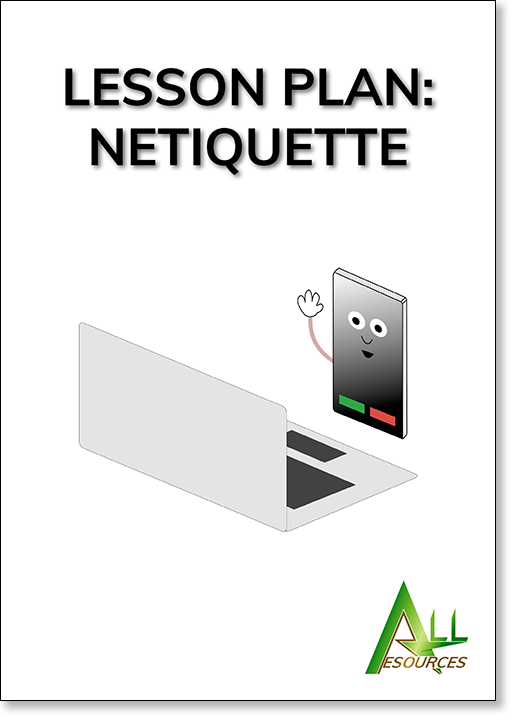Digital Literacy

Media Literacy — Part 1
This covers skills linked to media literacy including definitions and handouts for the classroom.
- Age range: 12 years and upwards
- Category: Lesson plan
- Last revised: 2022
- Pages: 17
- Duration: 1 hour
Hard copy: £10.99 add to basket

Netiquette
A lesson plan on netiquette and the different ways of behaving online.
- Age range: 12 years and upwards
- Category: Lesson plan
- First published: 2022
- Pages: 10
- Duration: 55 mins – 1 hour
Hard copy: £10.99 add to basket
When we think of ‘media’ we think of mass communication which includes broadcasting (by radio or TV), publishing (as in books, newspapers, magazines & journals) and the internet. We often hear expressions such as ‘information overload’ and ‘information anxiety’, and many people find it difficult to perceive what is truly important. This is because the modern, technological world has influenced patterns of media consumption, and the flow of information increases in volume and speed every day.
What is Digital Literacy?
Digital literacy is the capacity to understand, analyse and evaluate the messages we receive each day from various media sources. As we are bombarded with material from different types of media, it is important that we know how to interpret and comprehend this information. We need to analyse and challenge the messages we receive, and to do this we need to ask questions. This is the reason why digital literacy is so important and should be part of everyone’s education.
Types of Digital Media
A person that is digitally literate can identify the different types of digital media and the information being delivered so that they can respond appropriately. Digital media is available through a variety of digital methods which include:
- Online news sources
- Blog posts
- Websites
- Social networks
- Videos
Misinformation vs Disinformation
We frequently hear about these terms along with ‘fake news’. What is the difference between misinformation and disinformation, and how do we know whether news is true or false?
What is Misinformation?
Misinformation is false information that is spread without any attempt to discover if it is true or false. It is not always a deliberate attempt to spread false information but is carelessly passed on and is very often believed by those who receive it.
What is Disinformation?
Disinformation is the deliberate spreading of false information. It is misleading because it is fabricated to deceive people into beliveing something that is actually false.
What is Propaganda?
Propaganda is information conveyed in a persuasive way so as to influence minds and opinions.
What is Black Propaganda?
Black propaganda is very similar to disinformation. It is usually created to misrepresent or discredit someone and does not come from the source it claims to be from.
How to Develop Analytical Skills
Analytical skills are crucial when organising and assimilating information. They are drawn upon when identifying and analysing data in order to solve problems. We can develop analytical skills by taking the time to fully research a problem before making a decision. We should be observant, ask questions and gather all the necessary information when drawing a conclusion. It is also useful to visualise a problem prior to developing a solution.


